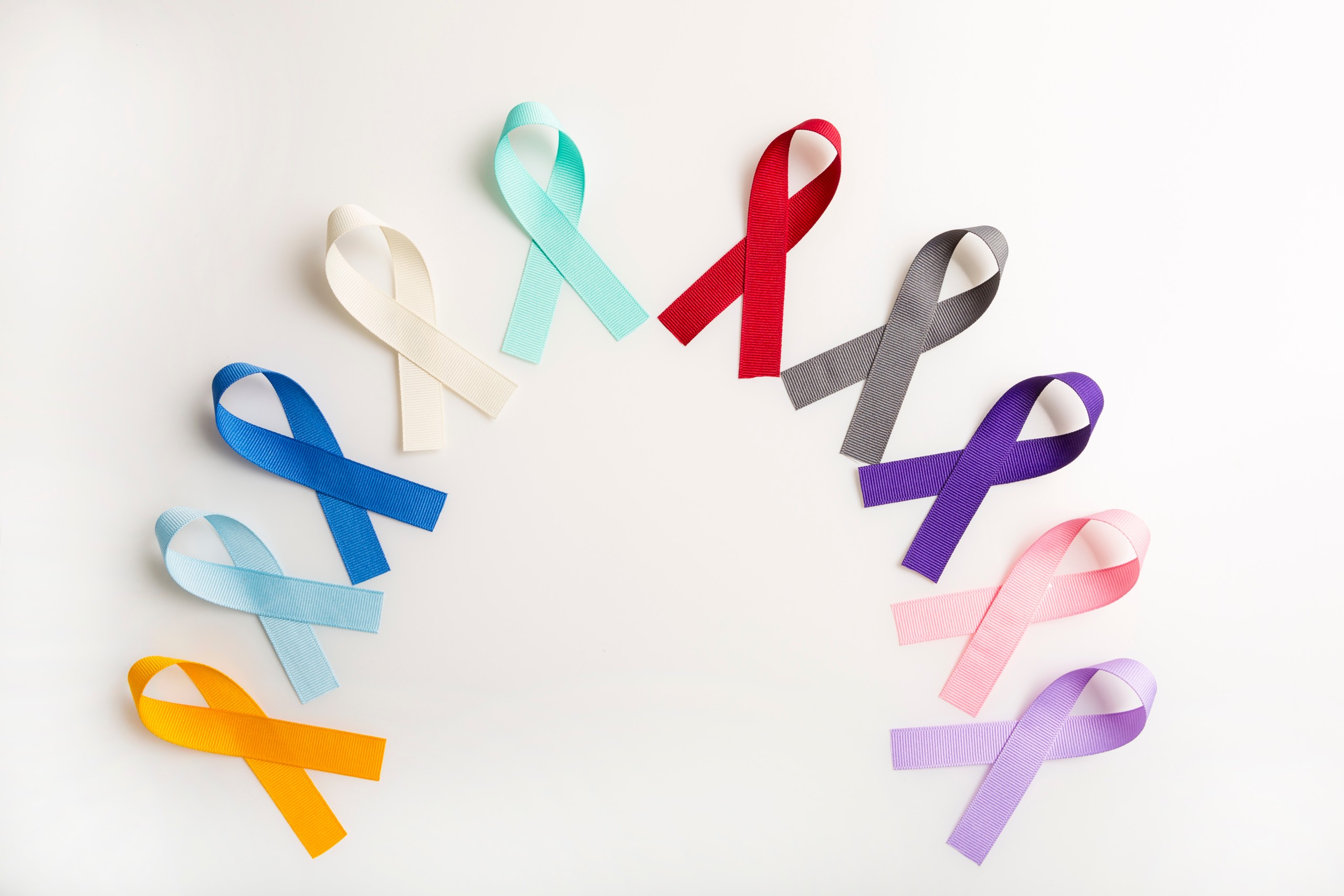The most common cancers in order of new cases diagnosed annually as of 2022 are:
- Breast Cancer: 15 percent of new cases diagnosed
- Prostate Cancer: 14 percent
- Lung Cancer: 12 percent
- Colon and Colorectal Cancers: 8 percent
According to the National Cancer Institute, the most common cancers differ slightly between men and women, with prostate cancer and breast cancer being the most commonly diagnosed, respectively. There’s little difference between men and women in the rates of lung cancer and colorectal cancer.
Most Common Cancer Types in Men
The most common cancer types in men are prostate, urinary and bladder, and melanoma skin cancer.
Prostate Cancer
Prostate cancer is the most common cancer diagnosed in men and the second leading cause of cancer death. Prostate cancer is very treatable, especially if it’s caught in the early stages. While there are often no symptoms of prostate cancer in the extremely early stages, proper screening may reveal an enlarged prostate, which can indicate something is wrong.
If you experience urinary tract issues, you may want to connect with a healthcare provider for a prostate cancer screening.
Urinary and Bladder
According to the American Cancer Society, men have a one in 28 chance of developing bladder cancer. Urinary and bladder cancer occur when cells in the bladder begin to multiply. This is typically caused by a mutation in the gene or abnormal cells. Carcinogens present in cigarettes are considered the number one aggravator for urinary and bladder cancers.
Melanoma
Melanoma is a cancer that grows on the skin and in men, is most likely to be found on the chest and back. It may look like dark spots or moles that are uneven and larger than average. Skin cancer is generally treatable and possibly curable when caught early.
Most Common Cancer Types in Women
According to the American Cancer Society, the most common cancers that affect women are breast and endometrial cancers.
Breast
Breast cancer is the most common cancer in women, and the risk of developing it increases as you get older. Getting regular screenings, like mammograms, is considered a reliable way to detect breast cancers early. If you have a genetic history or predisposition to developing breast cancer, you may want to speak with a healthcare provider about screening along with an MRI.
Endometrial
Endometrial cancer is cancer in the inner lining of the uterus. The risk of developing this cancer increases as you get older and is affected by changes in hormone levels, such as hormonal shifts that come with menopause, infertility or having an early menstrual cycle. Those with a genetic disposition to endometrial cancer or polycystic ovarian syndrome have a higher risk of being diagnosed with endometrial cancer.
Most Common Cancers in Both Men and Women
The most common types of cancers that affect men and women are lung and colorectal cancer.
Lung Cancer
Lung cancer is the abnormal and uncontrollable growth of cells within the lungs. It makes up roughly 12 percent of diagnosed cancer cases and is the leading cause (an estimated 21 percent) of cancer deaths. Cigarette smoking, secondhand smoke, exposure to asbestos and a family history of cancer are all linked to the development of lung cancer. Lung cancer screenings are generally recommended for those who have a history of smoking and are older.
Colorectal Cancer
Colorectal cancers are the second leading cancer killer known to affect both men and women. When doctors screen for colorectal cancer, they look for polyps or abnormal growths that may become cancerous in the future. According to the CDC, nine out of every 10 people who receive an early diagnosis and treatment for colorectal cancer are still alive five years later.
Early Detection
Early detection is important when it comes to cancer care. Early detection can positively impact outcomes by allowing patients to get the care they need as soon as possible.
Late detection and diagnosis are associated with the need for more aggressive care and potentially limited availability of certain treatments.
Early detection can allow for more effective treatment, as cancer that is treated preemptively is sometimes more curable. Some treatment options may include:
- Radiation therapy
- Surgery
- Immunotherapy
- Chemotherapy
Comprehensive Cancer Care in Roseburg, OR
Early detection is possible for Roseburg patients thanks to the thorough healthcare screenings available here at Community Cancer Center. We are proud to offer local cancer treatment services to our community. If you have a family history of cancer or are simply concerned you may be at risk for cancer, we encourage you to schedule routine screenings.
Call us at 541-673-2267 to speak with a cancer specialist or contact us online.
